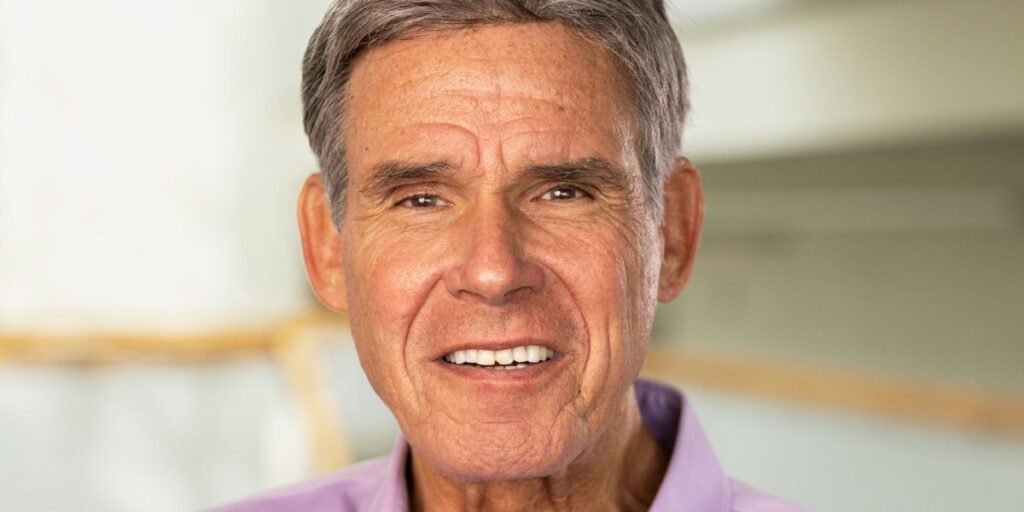
In 2007, a team of researchers embarked on a mission to unravel the mystery behind “SuperAgers”—individuals who not only reach their 80s without major chronic conditions but also maintain the cognitive health of someone much younger. The question was whether genetics, lifestyle, or sheer luck played the most significant role. Fast forward nearly two decades, and the findings have surprised many.
Dr. Eric Topol, a cardiologist and founder of the Scripps Research Translational Institute, which spearheaded the study, shared with Fortune, “We didn’t find these gene variants that we thought we might find.” The study involved over 1,000 participants, averaging 87 years in age, whom Topol affectionately calls “the wellderly.” This cohort has helped redefine the understanding of “SuperAgers,” emphasizing lifestyle factors over genetic predispositions.
“There’s only a small component here that’s actually genetic. It’s been overestimated,” explained Topol. “I was personally relieved because I have such a terrible family history. That felt good, that, hey, maybe I’m not destined to suffer the same illnesses.”
Topol’s latest book, Super Agers: An Evidence-Based Approach to Longevity, encapsulates decades of research, offering insights into the key factors for living longer and healthier lives.
Understanding the Lifestyle Factors of SuperAgers
In an era where longevity has become a wellness megatrend, with numerous companies promoting various health hacks, Topol aims to provide clarity. “We have a lot of things that are without any basis out there, and some of it is egregious,” he remarked, criticizing the trend of selling unverified supplements and unnecessary medical scans under the guise of longevity.
For Topol, the goal is not to reverse aging or gamify longevity but to reduce the risk of chronic diseases that become more prevalent with age. Here are three key takeaways from his extensive research on SuperAgers:
Exercise: The Age-Old Pillar of Health
Exercise has long been recognized as a cornerstone of good health, and its benefits are well-documented. It reduces the risk of heart disease, helps maintain cognitive function, and decreases the likelihood of age-related falls and frailty.
“Exercise is extraordinary. It works across all three age-related diseases,” Topol states, referring to cancer, heart disease, and dementia.
As a cardiologist, Topol has consistently advocated for aerobic exercise to mitigate heart disease risks. His studies on the “wellderly” have led him to also recommend strength training, including grip strength exercises and resistance training, to combat age-related muscle and bone loss and enhance balance and mobility.
The Mediterranean Diet: A Blueprint for Longevity
The Mediterranean diet, prevalent in many of the world’s blue zones, is characterized by whole foods, colorful fruits and vegetables, lean meats, whole grains, olive oil, and minimal dairy. According to Topol, this diet is the most protective against chronic diseases.
“It’s the best backed-up diet we have,” Topol emphasizes, noting its consistent success in research related to aging.
This diet also minimizes the consumption of ultra-processed foods, or what Topol refers to as the UFOs of food, which, when consumed regularly, can increase the risk of chronic conditions such as heart disease and stroke, potentially leading to early mortality.
Preventive Screenings: A Proactive Approach to Health
Age-related diseases typically develop over a span of two decades. Topol points out that many individuals are unaware of their risk for these diseases and therefore miss opportunities to make lifestyle changes that could mitigate these risks.
“How will we be able to forecast very reliably when, who, and what of these conditions we will be at risk for so we can prevent them for the first time?” he asks.
Topol predicts that preventive screenings will become more mainstream. While traditional healthcare systems focus on treating illnesses post-diagnosis, Topol envisions a future where progressive medicine and technology empower individuals to assess their risks early on. For example, if someone learns they have an increased risk for Alzheimer’s, they might be more inclined to adopt a healthier lifestyle to prevent the disease.
“We can get ahead of it, so that you never have to face that disease in your lifetime,” Topol asserts. “We can make big inroads by preventing age-related diseases.”
As the conversation around longevity continues to evolve, Topol’s research provides a grounded perspective amidst the noise, emphasizing practical lifestyle changes over unproven quick fixes.
A version of this story originally published on Fortune.com on May 23, 2025.






